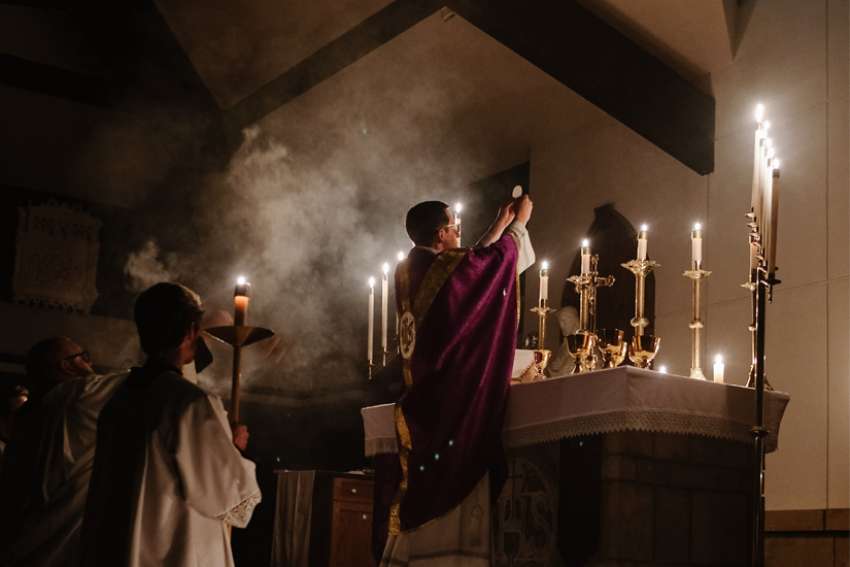The very survival and prosperity of the Israelites in the land they were entering depended on one thing: meticulous and conscientious observance of God’s ordinances and statutes.
This would be evidence of their fidelity to God and would make an impression on other nations. These nations would wonder at the wisdom and discernment of the Israelites, whose fidelity would ensure that God was always near and ready to help them.
They were warned not to add anything to these ordinances and statutes, nor to subtract anything. Most of these laws were concerned with building a just and humane society.
Standards were set for doing business, farming, personal conduct and human relationships. Provisions were made for the protection and care of the vulnerable, poor and marginalized.
Most of these make sense, even today. But there were also many regulations regarding sacrifice, worship and purity. Today some of them seem puzzling and at times harsh. We must remember, however, that they made sense in their original context three millennia ago.
These laws and ordinances formed a discipline that bound the people together and defined who they were. They were also an outward sign of their loyalty and obedience to God.
Today many of the norms, expectations, customs and regulations have disappeared or been called into question — and often for legitimate reasons.
Many human rules and traditions get mixed in with what originates from God. But we cannot exist as a community without a centre and spiritual culture that unites us to one another and to God. To do so encourages disintegration and sometimes extremism.
We are followers of Jesus together, as a community rather than a loose confederation of spiritual freelancers.
Whatever we decide defines us as the people of God must be embraced willingly and joyfully as a sign of our faithful relationship with God.
This relationship with God is very simple; it is we who make it difficult and complicated. James defines pure and undefiled religion as generosity and love: caring for widows and orphans and the poor and vulnerable. As part of that commitment, he adds the necessity of keeping oneself spiritually pure.
The word of God that has been implanted in our souls can do its work only when it is nurtured and put to use.
James leaves us with very sound advice: Be doers of the word, not just those who hear and do nothing. Our religious faith is a verb, not a noun. Love ought always to be expressed in deeds.
There is always a danger in religious observances and this Gospel story describes it well. Human traditions and customs are often deified and treated as doctrine. All religions have been guilty of this.
People continue doing things without really understanding the reason or what a custom or practice signifies. The real goal of the law is easily forgotten — it is mercy and justice. In the argument over purification of vessels and washing of hands before eating, Jesus challenged His listeners to ask themselves some questions.
Where does impurity come from?
Jesus insisted that it did not come from food or anything else outside the body. He focused on the human heart as the wellspring of all evil and malicious intentions and thoughts. They eventually take form: sexual immorality, theft, murder, greed, envy, pride, slander and folly, to name a few.
A person from whom these things come is defiled, but by their own inner disposition. That is the source of the problem, and it should be the focus of all efforts at purification.
People need to cleanse the temple of their heart and mind. The rules and traditions are there to remind us of this. When we forget this fundamental principle, it often happens that we begin to project our own impurity and darkness on other people, groups and institutions. It is difficult at first to accept, but often other people are not the problem — we are.
There is one law that must never be violated or set aside, and that is the law of love.


